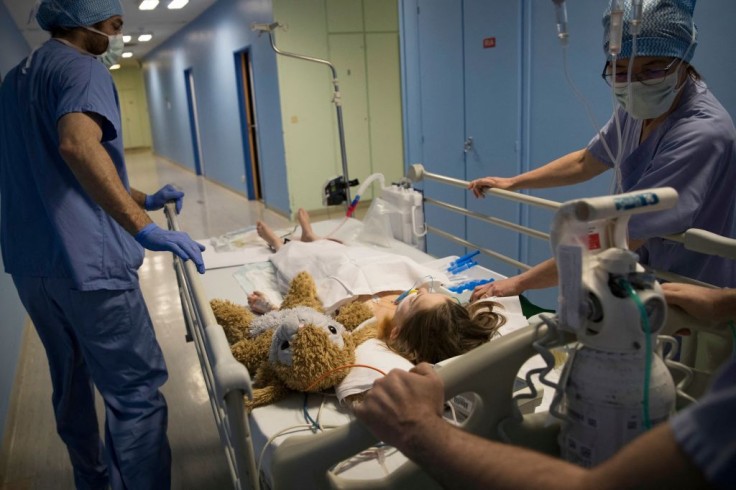
The alarming surge of kidney stones among children, particularly teenage girls, during the summer season has prompted children's hospitals across the country to establish specialized "stone clinics."
These clinics aim to address the growing prevalence of kidney stones among young patients and provide them with the necessary care and preventive measures.
As the incidence of this painful condition continues to rise, medical professionals are searching for answers regarding the causes and potential solutions.
Rising Incidence of Kidney Stones Among Children and Teenage Girls
According to NBC News, the medical community has observed a concerning trend: the occurrence of kidney stones, once considered a disease primarily affecting middle-aged white men, is now increasingly prevalent among children and teenage girls.
Recent data has shed light on this shift, revealing a rise in the number of young patients grappling with the excruciating pain caused by kidney stones, particularly during the summer months.
While the precise reasons behind the surge in kidney stones among children and teenage girls are yet to be definitively determined, medical experts speculate that a combination of factors may be at play.
The potential culprits include diets high in ultra processed foods, early-life exposure to antibiotics, and the effects of climate change leading to increased dehydration.
The intake of ultra processed foods, commonly containing high levels of sodium, has been linked to the formation of kidney stones.
Consuming excessive amounts of sodium from sources such as potato chips, sandwich meats, and packaged meals can lead to an accumulation of minerals in the urine, contributing to the formation of these hard deposits.
Moreover, the early and frequent use of antibiotics in childhood has raised concerns, as these medications can alter the gut microbiome and potentially disrupt normal kidney function.
The long-term effects of antibiotic use on kidney stone formation require further investigation.
Climate change has also emerged as a potential factor influencing the rise of kidney stones in children and teenage girls.
Hot and humid weather conditions increase sweating and reduce urination, facilitating the bonding of minerals within the kidneys and urinary tract.
This phenomenon makes children, who are particularly vulnerable to heat, more susceptible to the formation of kidney stones.
Establishing Specialized Stone Clinics to Address the Growing Concern
According to John Hopkins Medicine, kidney stones, also referred to as renal calculi or nephrolithiasis, are commonly associated with adults but can also impact children, including infants.
These formations arise when there is an excessive buildup of specific substances within the kidneys, resulting in the development of crystalline structures or stones.
While certain types of kidney stones can be attributed to underlying medical conditions, many are closely linked to dietary factors and nutritional choices.
According to NIH, to diagnose kidney stones in children, healthcare practitioners rely on a combination of factors, including the child's symptoms, medical background, physical examination, and various diagnostic tests.
These tests not only aid in confirming the presence of kidney stones but can also help identify underlying issues that contributed to their formation.
Recognizing the urgent need to address the increasing prevalence of kidney stones among young patients, children's hospitals have responded by establishing specialized "stone clinics."
These clinics provide comprehensive care for children and teenagers suffering from kidney stones, offering access to urologists, nephrologists, and nutritionists who can diagnose, treat, and help prevent future occurrences.
The stone clinics play a crucial role in not only addressing the immediate symptoms and complications associated with kidney stones but also in educating young patients and their families about preventive measures.
By focusing on early detection, personalized treatment plans, and lifestyle modifications, these clinics aim to alleviate the burden of kidney stones among children and teenage girls.